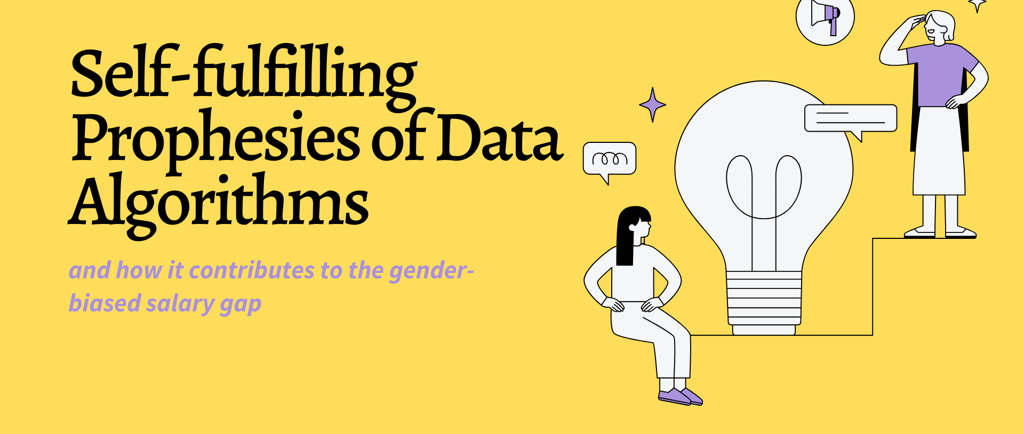Self-Fulfilling Prophesies of Data Algorithms
Everyone is struggling with the job search nowadays and finding a role that aligns with their qualifications and values. From “hidden jobs” to networking struggles, we are fighting with the hard reality of the job market. But evidently, women have an additional battle to fight. We all know about the fact, that male candidates tend to apply for a job post if they meet half or even less of the requirements listed in the job description whereas women look for jobs where they meet at least 80% of all qualifications listed. Today we want to dig deeper and discuss another side of the job hustle setbacks. An additional layer of complexity arises when examining how gender biases impact the types of job advertisements that women encounter. When women are presented with advertisements for lower-paying job opportunities, they are significantly more likely to apply for, and subsequently secure, these positions. This phenomenon contributes to a troubling cycle: as more women enter lower-paying roles, this data point reinforces the algorithmic models used by job platforms. Consequently, these algorithms favourably present lower-paying jobs to female job seekers, perpetuating a pattern that discourages upward mobility. In stark contrast, male users typically do not engage with lower-paying job ads, as they tend to gravitate toward higher-paying positions. This disparity creates a self-reinforcing loop that systematically restricts women's access to better opportunities. This issue is encapsulated in the concept of "self-fulfilling prophecies" in data science, where predictive algorithms inadvertently engineer the very realities they seek to forecast. Multiple research papers have addressed this phenomenon of gender bias in job advertisements, revealing significant empirical evidence of data bias in recruitment practices. For instance, Martínez et al. (2021) closely studied more than 5000 job advertisements across several major recruitment websites. The findings indicated that job listings are often presented differently based on the name associated with the applicant’s account. Specifically, the study found that positions viewed by accounts with female names frequently depicted lower-status roles compared to those viewed by accounts with male names. Further exploring this issue, Hu, Shenggang, et al. (2022) emphasised the influence of linguistic framing used in job postings on the salary disparities observed in the labour market. Their research revealed that job descriptions featuring “masculine” traits—such as terms denoting assertiveness, competitiveness, and leadership—were typically associated with higher-paying positions. In stark contrast, descriptions that included “feminine” traits, often encompassing nurturing, communication-related, and supportive skills, were predominantly linked to lower-paid roles requiring less experience or qualification. Moreover, the algorithms employed by various job search platforms, ranging from localised options like Infojobs in Spain to global networks such as LinkedIn, have been shown to perpetuate these disparities. The data indicates that female-named accounts are systematically steered toward job opportunities that not only come with lower salary brackets but also impose fewer educational and professional qualifications, thereby reinforcing existing gender inequalities in the job market. But here’s the good news: women who advocate for themselves and their worth are seeing positive changes. Mindset is the foundation of success. In business, life, and beyond, believing in your worth is crucial!
Irina Ruban
5/8/20241 min read


Empower, Connect, Grow
